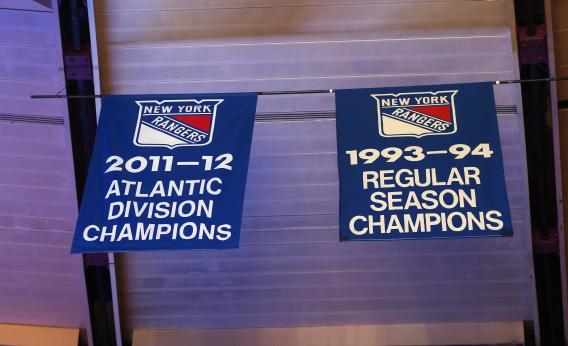With the end of the NHL lockout, it seems opportune to revisit the absurd greed involved in the conceit that owning a professional sports team should be not only a privilege for wealthy men to engage in if they so choose but one that they ought to be able to turn a profit doing.
But it’s a ridiculous idea. If you’re the owner of, say, the New York Knicks then you should of course want the Knicks to have lots of revenue since the revenue can be plowed into helping the team win. But any Knicks fan would be willing to incur some non-zero quantity of financial losses in order to see the team win its first NBA championship in decades. Lots of people, of course, wouldn’t want to do that. But that’s just to say that lots of people aren’t Knicks fans. And lots of Knicks fans couldn’t afford to spend very much money on seeing the team win, which is just to say that lots of Knicks fans aren’t rich. But obviously a rich Knicks fan is going to be willing to bear a non-zero financial cost in the pursuit of victory. And who but a rich Knicks fan is going to own the Knicks?
Or you can think of it from an asset value viewpoint. A rich investor needs to choose between bidding on an NHL team and bidding on an equally profitable Tim Horton’s franchise. Well if he loves hockey, he’s going to be willing to pay a premium to own an NHL franchise (fun!) rather than a boring Tim Horton’s. So if a bunch of different investors are considering bids on both properties, ultimately the NHL team is going to end up in the hands of a hockey fan who’s going to end up “overpaying” for the team if you value it as a business.
That, at any rate, is how it should be. Owning a pro sports franchise is pretty awesome and it’s something that high net worth sports fans ought to be doing as a costly hobby. The relevant financial fact is that it’s a costly hobby you can exit from by selling your team to the next guy. But the web of municipal subsidies, labor market cartels, and barriers to market access that have been spun around the conceit that it should be a lucrative hobby flies in the face of all kinds of common sense. After all, you look at the people with great season ticket packages to any of these teams. Who are those guys? Not savvy investors. They’re rich fans dropping a lot of money on indulging their hobby. And the owner is the richest and most indulgent fan of all. Except somehow he expects to get paid for it? It’s nuts.
